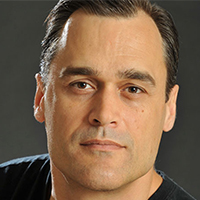
On Tuesday, the Supreme Court of Canada struck down a mandatory minimum sentence, in part because there’s little evidence that mandatory minimum sentences deter crime. On Wednesday, in this forum, Dr. Barry Dworkin expressed his great frustration about something that probably seems completely unrelated: OHIP will not cover the cost of speech therapy one of his young patients needs, and so his parents are struggling to pay the $20,000 annual bill.
So what is the connection? Crime. And the foolish ways we talk about fighting it.
The Supreme Court was absolutely right about mandatory minimums. Their effects have been studied for decades and the evidence overwhelmingly shows they are expensive, unjust, and ineffective. Would-be criminals are not rational calculators who carefully study the potential costs and benefits of crime and decide to proceed only when the latter outweigh the former. They tend to be poorly educated, poorly informed, and impulsive. Many are substance abusers. More suffer mental illness. It is a fantasy to think potential criminals carefully monitor Parliament’s constant tinkering with the Criminal Code, much less that tinkering can dissuade them in the heat of the moment.
What does work, according to the research, is early intervention to prevent the pathologies that contribute to criminal behaviour. Failure in the early years at school, for example, is a strong predictor of future crime, so if we intervene with at-risk kids ”” even before they enter school ”” and and give them the extra help they need to succeed, we not only improve education outcomes. We reduce crime.
In health care, governments love to talk about prevention, but as Dr. Dworkin noted, they often don’t practice what they preach. ”œIf left untreated, a child with verbal apraxia can have difficulties progressing through school, developing properly as an adolescent, forging normal interpersonal relationships, and eventually finding a job and becoming a functioning adult,” Dr. Dworkin wrote. ”œYou would think that the cost and burden of all of the above to the individual, the family, and to society would lead to the logical conclusion that our public health system should cover the cost of treatment necessary to help him.” And yet it does not.
But notice where Dr. Dworkin left off: A child who cannot speak properly at school, picked on by his peers, doing poorly in his classes, becomes alienated and ultimately gives up. Failure at school is followed by work and social failure. A struggling child is now a struggling young man ”” exactly the sort of young man who is far likelier to engage in crime.
So why do we so seldom hear politicians talk about crime in those terms, discussing policies that might actually work, instead of the disproven nonsense of tougher punishment deterring crime? Blame psychology. Blame the media. Blame democracy.
As I discussed in my book, Risk, the media have little interest in ”œcrime” ”” that is, the phenomenon and its causes ”” and seldom discuss it. But they are endlessly fascinated with ”œcrimes” ”” instances of one person hurting another ”” and they report it constantly, the nastier the crime the better.
As a result, public discussions of crime policy are almost always spurred by some new and horrible incident. And in the aftermath of tragedy, a calm and rigorous analysis is all but impossible. We want justice! Identify the guilty and punish them ”” and swear that anyone else who does the same will pay dearly. Make us feel safe. Now.
The last thing anyone wants to hear is how that horrible criminal became a horrible criminal ”” the mental illness, the substance abuse, the broken family, the bullying at school. No one wants to imagine the monster when he was a young child, alone, confused and frightened. No one wants to consider that maybe ”” just maybe ”” if the adults and authorities around the child had done more for him be would not have become the monster who committed that awful crime.
A veteran judge once told me he knows people get furious if he cites an offender’s childhood as a mitigating factor at sentencing, but anyone who hears the horrors he hears during sentencing hearings would feel the same as he does. But we don’t sit in sentencing hearings. We don’t hear those horrors. We only hear about the horror the offender inflicted on someone else.
Compounding the problem is time and complexity.
”œTough on crime” legislation is dead easy: Say you’re going to impose a severe mandatory minimum for a crime, pass the bill, done. Everyone understands it. It makes intuitive sense. And it goes into force immediately. But early childhood intervention? There’s no intuitive link between that and crime. Programs are complex and need to be carefully designed and evaluated, which takes a great deal of time and effort. And even when a proven program is implemented, the crime-fighting payoff comes 10, 15, 20 years later.
Imagine a politician saying to a public alarmed by some nightmarish crime that she’s going to respond by implementing a variety of early childhood interventions ”” and then imagine her losing in a landslide to the candidate who promises to ”œcrack down now!
It’s inevitable that at least some politicians will keep selling that old time snake oil.
But don’t worry about Dr. Dworkin’s young patient. His parents can afford to pay for the intervention that will reduce his risk of becoming the criminal of our nightmares, even if it squeezes them badly and it’s unjust that they should have to foot that bill. They can pay.
Worry about the children whose parents can’t or won’t.








